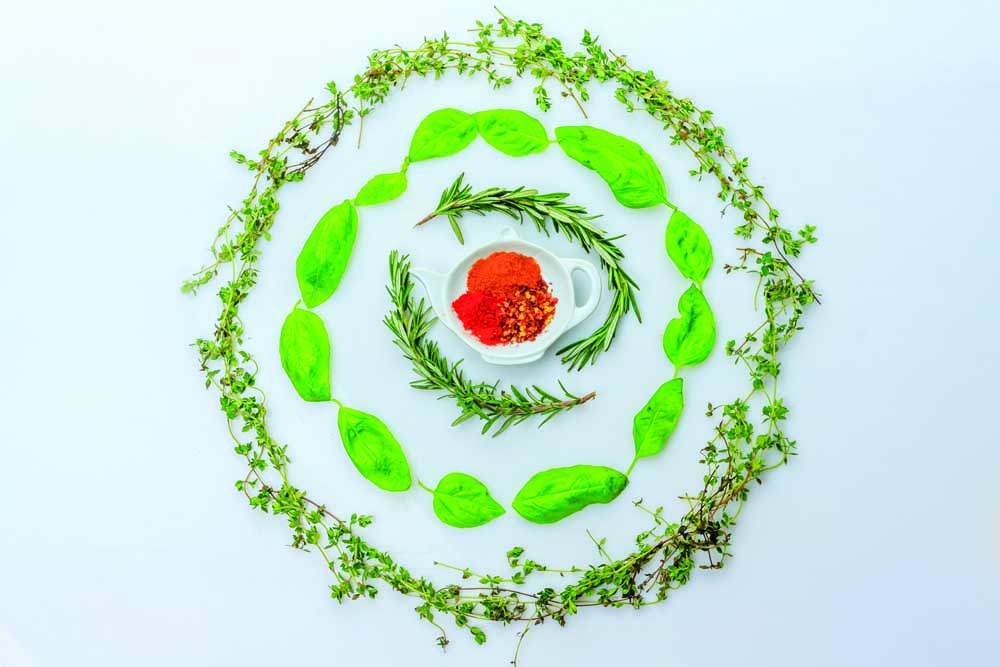Rediscover your
Published 12:00 am Saturday, May 17, 2014

- Rediscover your
We started out with around 9,000 taste buds, so where did they go? Research has shown that our taste buds diminish as we age. It starts in our 40s and 50s for women, and for men it begins in their 50s or 60s. Combine that with a less perceptive sense of smell, and it explains why older adults will sometimes point out that “food just doesn’t taste like it used to.”
Our taste buds are responsible for the four qualities of taste – salty, sweet, sour and bitter. All four of these can diminish, but salty and sweet tastes typically go first, and sour and bitter decline later. A gradual or minor decrease in the nuances of flavor can go unnoticed, but more severe degeneration can be detrimental to our health and even contribute to a lack of food safety, if odors that signal spoiled food go unnoticed.
Trending
“The loss of smell is the biggest contributor to the loss of flavor sensation,” said Dr. Robert Skarperud, a naturopathic physician at Blue Star Naturopathic Clinic in Bend. “Everybody loses their sense of olfaction in aging, even healthy people.”
The loss of smell, combined with atrophied taste buds, can put a real damper on flavor.
“It’s like having a major cold and eating something. The flavor’s just not there,” said Dr. Skarperud.
And while some of this loss is inevitable as we age, other factors – which can be controlled – can come into play.
“Medication can be a major factor in loss of taste or smell,” said Eris Craven, a registered dietitian with HomeCare IV. Craven recommends that anyone who notices an alteration in their sense of taste while on medication talks to their doctor about the possibility of changing their medication.
There are still other contributors to the loss of taste and smell. A natural reduction in the saliva you produce as you age can affect your sense of taste, as can chronic health issues, smoking and exposure to harmful particles in the air. Whatever the cause, the loss of taste can have a profound effect on your interest in, and enjoyment of, food.
Trending
Luckily, there are several ways to make food more enjoyable after a decrease in the sense of taste. But first, consider an important error to avoid. What may be a knee-jerk reaction – adding more salt to food – is not recommended, especially for anyone with health issues that require reduced sodium intake, like hypertension, diabetes or heart disease.
“If you gradually change over to using less salt, your sense of taste will adjust,” said Dr. Skarperud. For a diet low in salt, he recommends the DASH model of eating, which emphasizes eating whole foods, instead of processed ones. And, he said, when following a recipe you don’t have to follow the instructions on the amount of salt to use.
One of the best things you can do to make food more enjoyable again is to elevate the presentation of food.
“Presentation is everything,” said Craven. A colorful and appealing plate of food can improve the whole eating atmosphere, as can setting a beautiful table and making eating into a more social event.
To bump up the flavor of foods without added salt (or sugar), Craven recommends using more aromatics – such as garlic, onions, herbs and spices – in cooking. These flavor enhancers, along with the addition of some healthy fats like olive oil and toasted nuts, can make an immediate and noticeable difference in the taste of foods without any adverse health repercussions.
Even small amounts of flavor-laden foods, like crumbled turkey bacon or grated cheese, can be used to boost flavor if appropriate to an individual’s diet, said Craven.
“We still need to be careful about what we put into our bodies because it can still have an impact on our health,” she said.
Trying new foods is another tactic Craven suggests. Some people with a reduced sense of taste may now be able to enjoy foods that were previously too strong.
“I would really encourage people to step outside the box and be open to trying new flavors and tastes,” said Craven. The result could be a new found enjoyment in the pleasure of eating.








